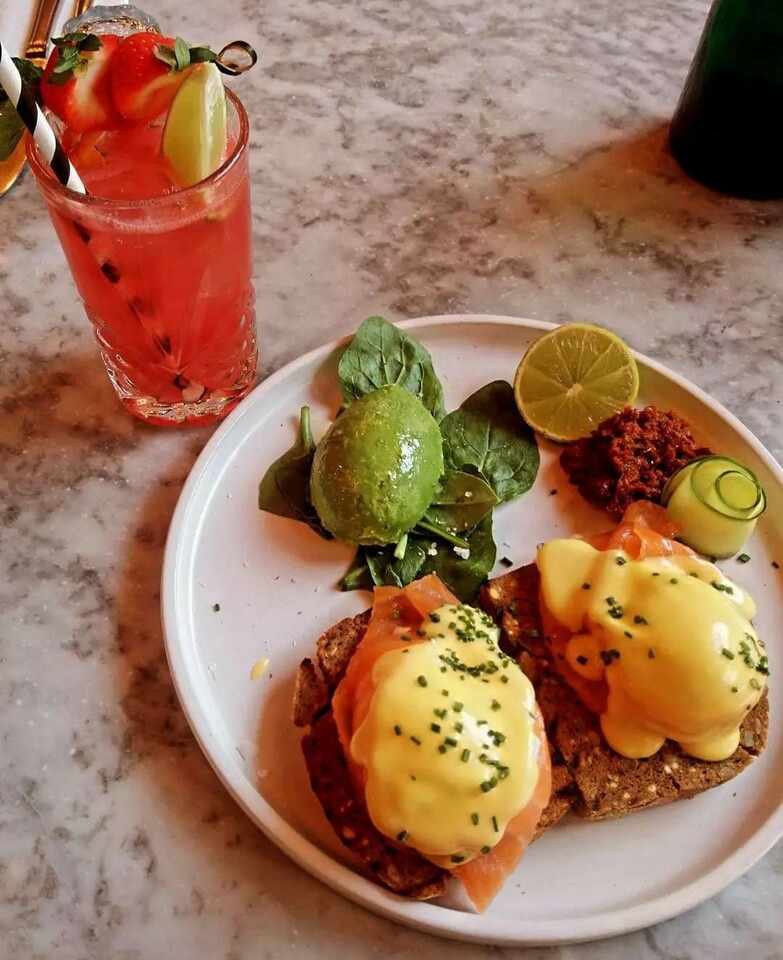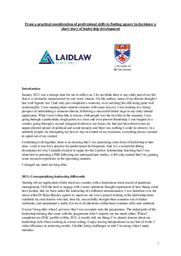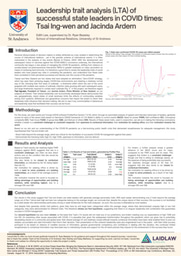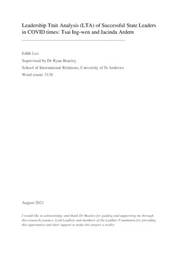A dummy's guide to curbing your inner workaholic: remember to take a break!

The greatest blessing of the Laidlaw Scholarship is, in my view, working on a project that I truly love and enjoy. The greatest downside at this stage of the scholarship? Well, I kid you not: working on a project that I truly love and enjoy.
It is an exciting prospect for students at this stage of our academic journey to conduct our own research, share our results, and share our own ideas. However, it is important to acknowledge one simple fact: that we are still learning the art of research, and we should therefore hold our expectations as such. All too often, over this summer, I have fallen into the trap of upward comparison: comparing my own work and progress against other published research, and expecting to produce and report results in that skin. Looking at my work-in-progress, at this stage, I can say I'm happy with the targets I've hit and the results I've produced. But I must also acknowledge that I have sometimes forgotten - or, more accurately, willfully ignored - the fact that the standards of these research which I all too often compare my work against are products of months, if not years, in the making, perfected through a notoriously harsh publication process, involving rounds and rounds of rejections and stringent peer review process.
Now, I must say, I've had the blessing of being supported by a wonderful group of people, including my supervisor, the Laidlaw team at the university, my friends and my fellow Laidlaw Scholars working in St Andrews. However, I cannot simply brush the serious ramifications to both my physical and mental wellbeing, brought by this upward comparison mindset, under the rug. So, in the spirit of writing up the conclusion and discussion to my research findings, what are some of the biggest takeaways I've got from this summer? Well, here are a few items:
1. Take notice when you stop engaging in your hobbies. In retrospect, this may perhaps be one of the biggest signs when I started over-indulging in my work, which ate into my time to look after myself. My advice? When you notice you've stopped doing things you personally enjoyed, or are on a trajectory where you're doing it less and less - put a hold on your work, and re-examine your priorities. Yes, the dopamine reward stemming from personal achievements is an unparalleled feeling in itself - but ask yourself, is it worth sacrificing these other moments of enjoyment in your summer for?
2. Connect with your friends. I only realised that I have grown apart from one of my closest friends over the summer, when he noted that, despite my promises to show him my summer apartment, I have never actually done it until when he practically demanded (in good spirits, of course) to come, towards the end of my tenancy. It was a moment where I couldn't help but think about the weekly dinners we used to have at each other's place, just the semester prior. My advice? Take a moment to consider your usual socialising habits and patterns. Are you doing things with your friends less? Is this impacting your moods, your productivity, your overall health? It is absolutely reasonable to commit more towards something that you enjoy working on; however, this should not come at the expense of your personal relationships with others.
3. Remember to take a break! My, oh my, who could imagine something as simple and alluring as a break can be forgotten? Yet here is the reality: it is sometimes tempting to look at the momentum that you've built up over a while and the progress you've achieved, and say, 'well, I can probably do a little more today!' Lo and behold - there goes a few more precious hours which you could have spent tending to your own wellbeing via the two points above. My advice? Well, find an accountability partner. Your closest friends are most likely, already your best accountability partners - mine never hesitated to call me out on my sometimes compulsive habits, but have them take a step further. Have them reason with you when they notice that these habits become potentially self-destructive. Tell them to demand to be in your life when your work habits become compulsive - remember, they are just as important in your life as this project. Neither is worth losing the other over.




Please sign in
If you are a registered user on Laidlaw Scholars Network, please sign in